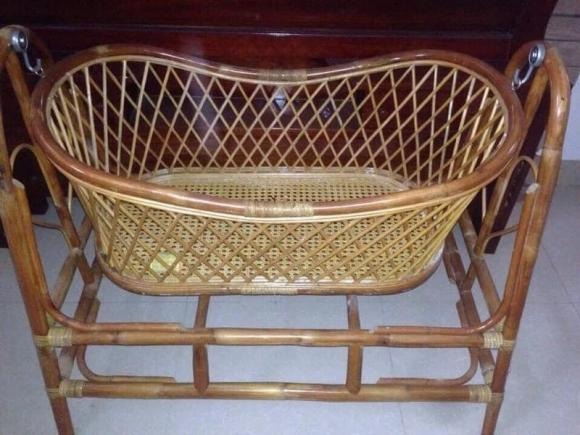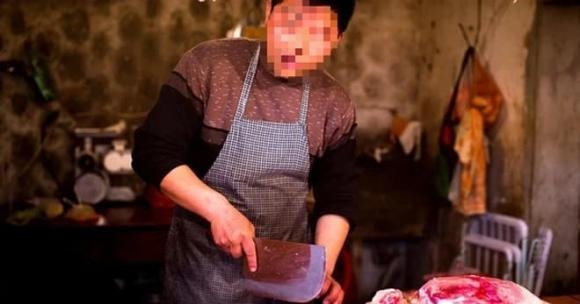## Superstitions and Taboos: Objects with Symbolic Significance
Don’t Lend Out Your Baby’s Crib
The crib is intimately associated with a child’s birth, and in ancient beliefs, a baby lying in a crib brings good fortune to the family. Lending out the crib is thus seen as giving away your child’s blessings, which could diminish the family’s prosperity.
Moreover, older cribs were not as sturdy as modern ones and prone to wear and tear. Lending them out could lead to unwanted risks, as ancient people believed that infants needed extra care and protection. If possible, they would buy a new crib to ensure the baby’s safety and comfort.

The crib is intimately associated with a child’s birth and is believed to bring good fortune.
Butchers Don’t Lend Their Knives
To a butcher, the knife is a livelihood tool, distinct from regular household knives. It symbolizes wealth and good luck. Lending it out is akin to giving away your fortune, luck, and prosperity, inviting bad luck.
Additionally, butcher knives are incredibly sharp, and an inexperienced borrower could injure themselves. If the knife causes an accident in someone else’s hands, the owner may face consequences. In ancient beliefs, lending a weapon used in a crime would implicate both the lender and the borrower. For this reason, butchers never lend their knives to outsiders.

A butcher’s knife is a unique tool and a symbol of their trade.
Don’t Lend a Walking Stick to the Elderly
Walking sticks are essential for the elderly or those with leg injuries, aiding their mobility. In ancient times, walking sticks were highly valued, and their quality often indicated social status. Some were even made from precious wood, symbolizing good luck, longevity, and the warding off of bad luck.
Lending a walking stick was akin to lending your life, as it represented not just mobility but also health. Additionally, the elderly often had health issues, and lending their walking stick could lead to complications and risks for the borrower. Thus, it was avoided.
Don’t Share Your Medicine Pot
In the days before pills, herbal remedies were common, and a medicine pot was essential. These pots were used to brew traditional Chinese medicines, which required long brewing times and were used over extended periods. The medicine would infuse into the pot, and since each person’s body is unique, so too would their medicine and pot be.
Borrowing someone else’s medicine pot could lead to adverse reactions, as different medicines might conflict. This could be dangerous, even life-threatening, as certain drugs cannot be mixed. Therefore, it is best not to borrow or share medicine pots to ensure safety.
The Ancient’s Wisdom: “7 Won’t Bury the Father, 8 Won’t Bury the Mother” – Unraveling the Mystery
“Burying a parent is one of the toughest moments in life, and the old adage, ‘7 won’t bury their father, 8 won’t bury their mother’ is a poignant reminder of the complexities of life and death. This proverb, passed down through generations, holds a deeper meaning that isn’t always readily understood.”





































